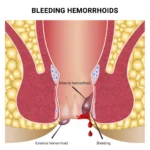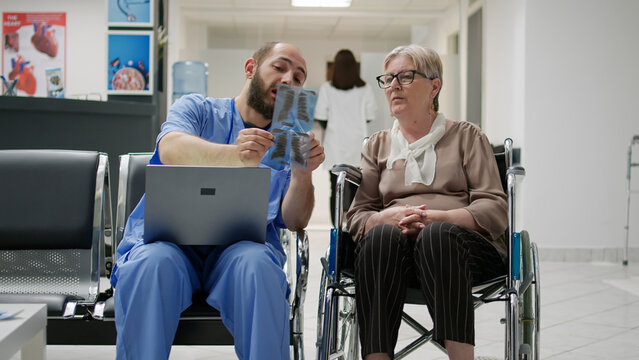Living with a chronic health condition can feel overwhelming, requiring ongoing medical attention and lifestyle adjustments. Chronic Care Management (CCM) programs provide comprehensive support systems designed specifically for patients managing long-term health conditions like diabetes, heart disease, arthritis, and COPD.
Chronic Care Management delivers personalized care plans, regular check-ins, medication management, and coordination between healthcare providers to improve patient outcomes and quality of life. These structured programs help bridge gaps between office visits, ensuring patients receive consistent care rather than fragmented treatment.
CCM services typically include 24/7 access to healthcare professionals, preventive care strategies, and patient education resources that empower individuals to take an active role in managing their conditions. By addressing both physical and emotional aspects of chronic illness, these programs help reduce hospitalizations and emergency room visits while supporting patients in their day-to-day health management challenges.
Defining Chronic Care Management
Chronic Care Management (CCM) is a healthcare service focused on patients with two or more chronic conditions expected to last at least 12 months. These services include comprehensive care coordination, medication management, and regular assessment of the patient’s medical, functional, and psychosocial needs.
CCM typically involves creating personalized care plans that outline treatment goals, medication schedules, and necessary medical interventions. These plans are regularly updated based on the patient’s changing health status.
The Centers for Medicare and Medicaid Services (CMS) has formalized CCM as a billable service, recognizing its value in improving patient outcomes and reducing healthcare costs.
Common Chronic Conditions Addressed
Chronic Care Management addresses numerous persistent health conditions that require ongoing medical attention and lifestyle adjustments. The most frequently managed conditions include:
- Cardiovascular diseases: Heart failure, coronary artery disease, and hypertension
- Respiratory conditions: COPD, asthma, and pulmonary fibrosis
- Metabolic disorders: Diabetes, thyroid conditions, and obesity
- Neurological conditions: Parkinson’s disease, multiple sclerosis, and dementia
Arthritis, chronic kidney disease, and depression are also commonly managed through CCM programs. Many patients experience multiple conditions simultaneously, creating complex care needs.
Key Components of Chronic Care Management
Effective chronic care management employs several interconnected components that work together to improve patient outcomes and quality of life. These elements form a comprehensive approach that addresses both clinical needs and personal circumstances of patients living with ongoing health conditions.
Personalized Care Planning
Personalized care planning forms the foundation of effective chronic care management. Each plan is tailored to the patient’s specific medical conditions, health goals, and personal circumstances.
The planning process begins with a comprehensive assessment of the patient’s health status, including all diagnosed conditions, medication regimens, and functional limitations. This assessment identifies immediate concerns and potential future risks.
Care Coordination Across Providers
Care coordination ensures that all healthcare providers work together cohesively for the patient’s benefit. This component addresses the fragmentation often experienced in healthcare systems.
A dedicated care coordinator or nurse typically serves as the central point of contact for patients, helping them navigate appointments, treatments, and communication with specialists. This professional maintains comprehensive documentation of the patient’s care across all settings.
Health Monitoring and Follow-Up
Consistent monitoring forms a critical component of chronic care management, allowing for early detection of changes in health status. This proactive approach helps prevent complications and reduce emergency interventions.
Remote monitoring technologies now enable collection of vital health data between office visits. Patients can track blood pressure, glucose levels, weight, and other metrics from home, sharing data securely with their care team.
Patient Education and Engagement
Effective chronic care management empowers patients through education and active participation in their care. Informed patients make better health decisions and demonstrate improved adherence to treatment plans.
Education covers condition-specific information, medication management, symptom recognition, and strategies for lifestyle modifications. Materials are tailored to patients’ health literacy levels and preferred learning styles.
Benefits of Chronic Care Management for Patients
Chronic Care Management (CCM) provides essential support structures that directly impact patient wellbeing through personalized care plans and coordinated healthcare services. These programs deliver measurable benefits that extend beyond traditional episodic care approaches.
Improved Health Outcomes
Patients enrolled in Chronic Care Management programs typically show better control of their conditions. Blood pressure readings, blood glucose levels, and other clinical markers tend to stabilize within target ranges more consistently than with standard care approaches. This stability stems from regular monitoring and timely interventions.
Enhanced Quality of Life
Patients report reduced symptom burden and pain levels when enrolled in comprehensive CCM programs. Regular check-ins allow for prompt symptom management, preventing minor issues from becoming major problems.
Independence increases as patients develop better self-management skills. Educational components of CCM teach practical strategies for daily living with chronic conditions, empowering patients to handle routine aspects of their care confidently.
Mental health benefits include:
- Lower rates of depression and anxiety
- Improved coping mechanisms
- Enhanced sense of control over health
- Stronger support networks
Reduced Hospitalizations
Emergency department visits decrease by approximately 30% for patients in well-structured CCM programs. Regular monitoring helps identify concerning symptoms before they escalate to emergency situations.
Hospital readmission rates drop significantly, with studies showing 20-25% reductions within 30 days of discharge. Care coordination ensures proper follow-up and transition support after hospitalizations.
Patient Participation and Self-Management
Successful chronic care management depends heavily on patients taking an active role in their treatment plans and developing skills to manage their conditions day-to-day.
Encouraging Active Involvement
Patient engagement is fundamental to effective chronic care management. When patients actively participate in their care, they experience better health outcomes and improved quality of life. Healthcare providers can foster engagement through collaborative goal-setting that aligns with patients’ personal values and priorities.
Barriers to Implementation
Financial constraints remain a primary obstacle in CCM implementation. Many healthcare systems struggle with inadequate reimbursement models that fail to cover the comprehensive services needed for effective chronic care.
Provider burnout presents another significant challenge. The documentation requirements and care coordination demands of CCM programs can overwhelm healthcare professionals already managing heavy workloads.
Key Implementation Barriers:
- Inadequate reimbursement structures
- Provider burnout and workforce shortages
- Patient engagement challenges
- Fragmented communication systems
Emerging Technologies and Trends
Remote patient monitoring devices are transforming CCM by enabling real-time health tracking. These tools allow providers to detect concerning trends before they become emergencies, particularly beneficial for patients with diabetes and heart conditions.
Artificial intelligence applications are enhancing predictive capabilities in chronic care. AI algorithms can identify high-risk patients and recommend personalized interventions based on comprehensive data analysis.
FAQs
What are the necessary components of an effective Chronic Care Management plan template?
An effective CCM plan template must include a comprehensive problem list detailing all chronic conditions and their status. Measurable goals with realistic timeframes and clear action steps are essential for tracking progress.
What strategies are essential for effective management and support of patients with chronic illnesses?
Proactive monitoring through regular check-ins and remote patient monitoring technologies helps identify issues before they escalate.
How do self-management programs benefit patients with chronic conditions?
Self-management programs empower patients with knowledge and skills to actively participate in their care, leading to improved clinical outcomes and quality of life.






